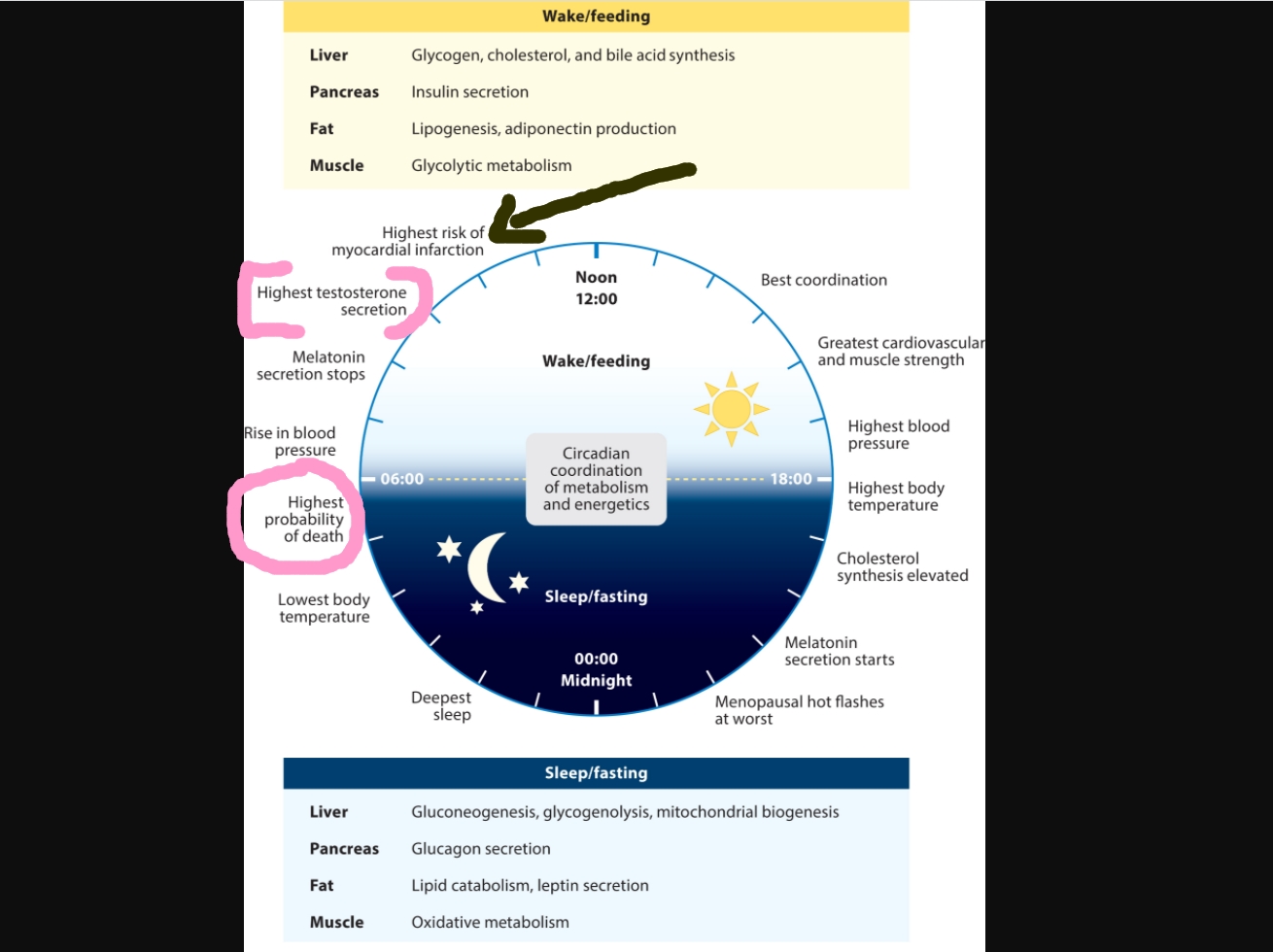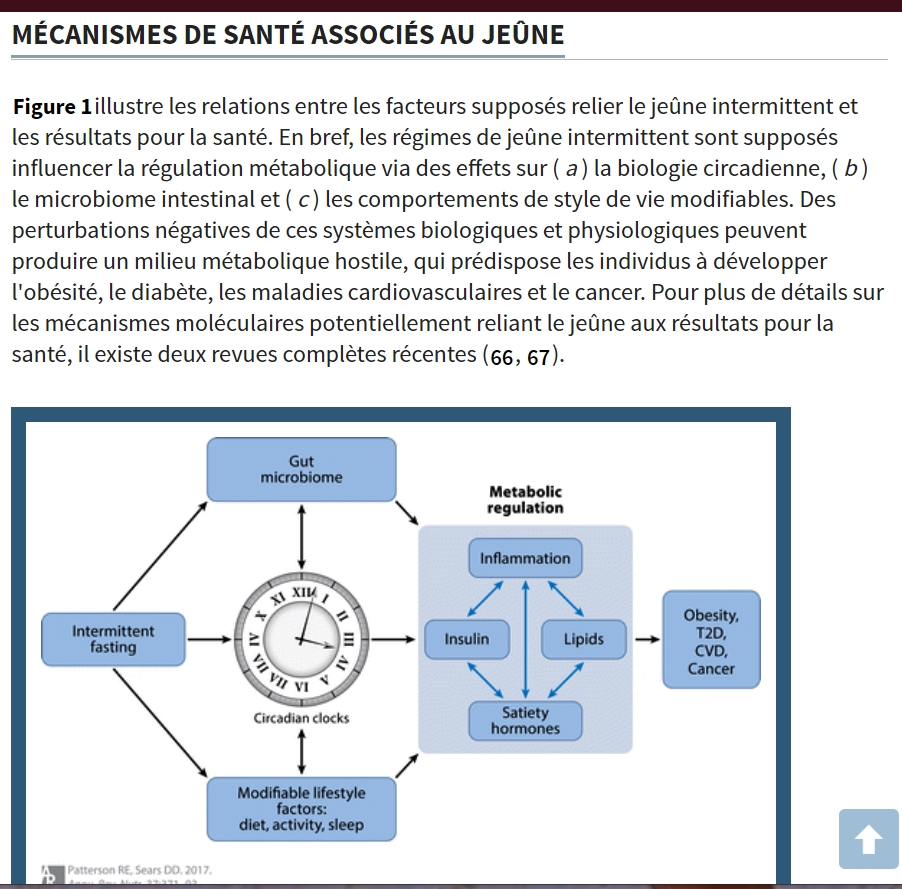Metabolic Effects of Intermittent Fasting
Annual Review of Nutrition Vol. 37:371-393 (Volume publication date August 2017) Ruth E. Patterson
The objective of this review is to provide an overview of intermittent fasting regimens, summarize the evidence on the health benefits of intermittent fasting, and discuss physiological mechanisms by which intermittent fasting might lead to improved health outcomes. A MEDLINE search was performed using PubMed and the terms “intermittent fasting,” “fasting,” “time-restricted feeding,” and “food timing.” Modified fasting regimens appear to promote weight loss and may improve metabolic health. Several lines of evidence also support the hypothesis that eating patterns that reduce or eliminate nighttime eating and prolong nightly fasting intervals may result in sustained improvements in human health. Intermittent fasting regimens are hypothesized to influence metabolic regulation via effects on (a) circadian biology, (b) the gut microbiome, and (c) modifiable lifestyle behaviors, such as sleep. If proven to be efficacious, these eating regimens offer promising nonpharmacological approaches to improving health at the population level, with multiple public health benefits.















